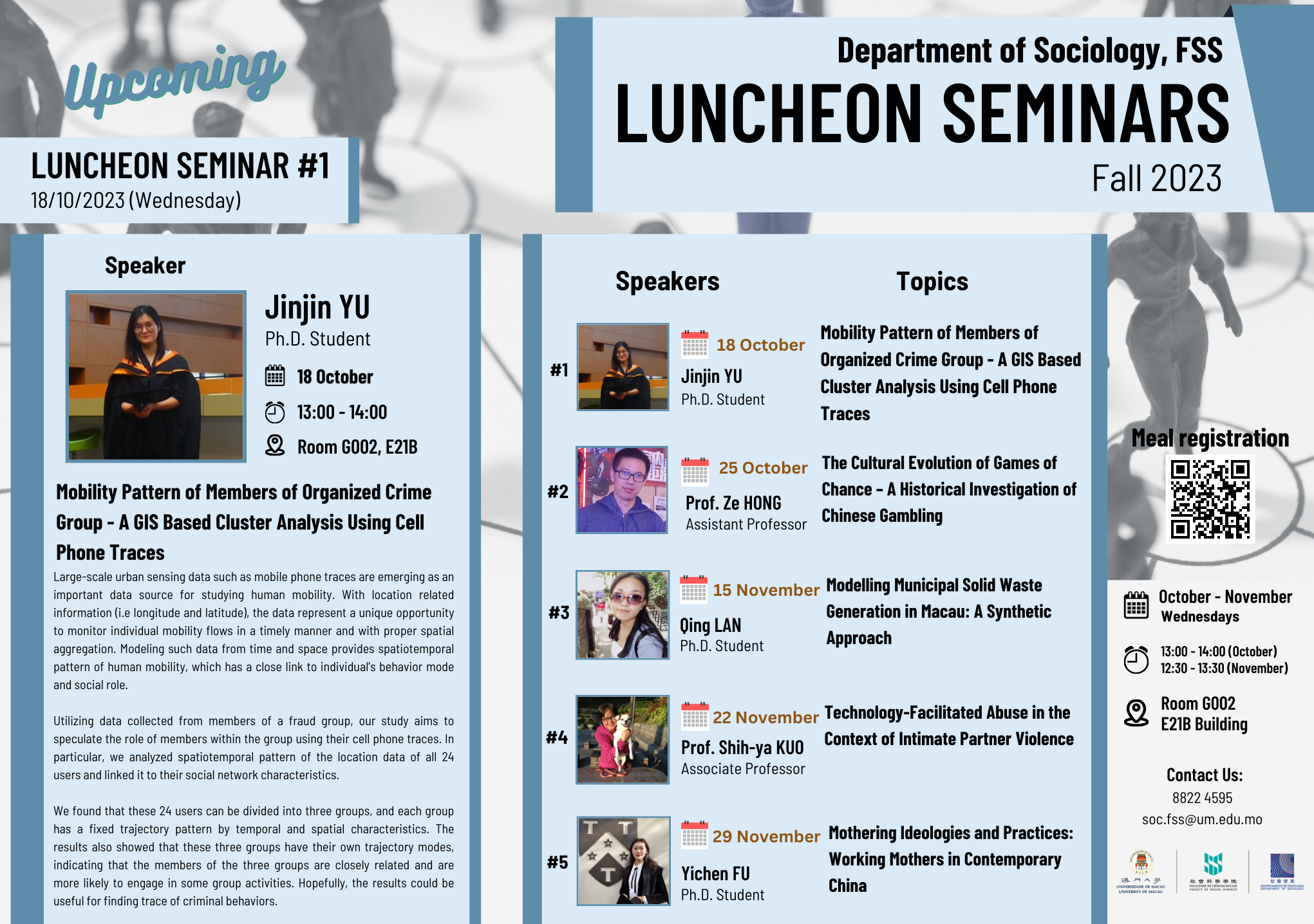
Date: October 18
Time: 1:00 pm – 2:00 pm
Speaker: Ms. Jinjin Yu
Venue: E21B-G002
Organizer: Department of Sociology
Phone: 8822 4595
Large-scale urban sensing data such as mobile phone traces are emerging as an important data source for studying human mobility. With location related information (i.e longitude and latitude), the data represent a unique opportunity to monitor individual mobility flows in a timely manner and with proper spatial aggregation. Modeling such data from time and space provides spatiotemporal pattern of human mobility, which has a close link to individual’s behavior mode and social role.
Utilizing data collected from members of a fraud group, our study aims to speculate the role of members within the group using their cell phone traces. In particular, we analyzed spatiotemporal pattern of the location data of all 24 users and linked it to their social network characteristics.
We found that these 24 users can be divided into three groups, and each group has a fixed trajectory pattern by temporal and spatial characteristics. The results also showed that these three groups have their own trajectory modes, indicating that the members of the three groups are closely related and are more likely to engage in some group activities. Hopefully, the results could be useful for finding trace of criminal behaviors.

